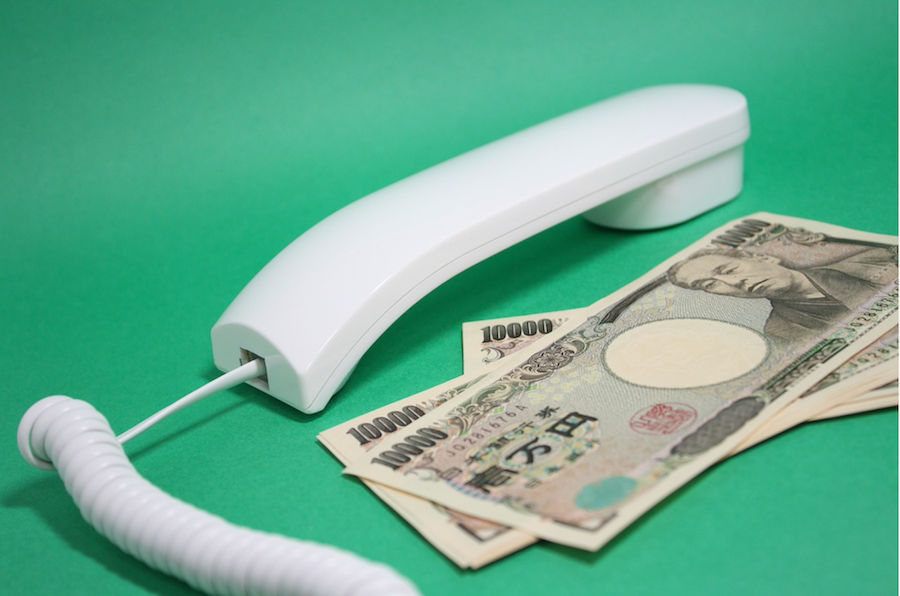Troubleshooting Credit Card to Bank Transfers: What You Need to Know and How to Protect Your Information
GPT_Global - 2024-09-27 22:00:14.0 62
What happens if the bank account information provided for the credit card money transfer is incorrect?
When it comes to sending money through a credit card, it is important to ensure that the bank account information provided is correct. This is because if there is a mistake in the account details, the transfer may not go through, causing delays and extra fees for both the sender and the recipient.
In cases where the bank account information provided for the credit card money transfer is incorrect, several things can happen. The first possibility is that the transfer will be rejected by the bank. This could happen if the account number or routing number is incorrect or if the account belongs to another bank.
If this happens, the sender will be notified of the rejection and the transfer will not go through. They will then have to go through the process of correcting the bank account information and initiating the transfer again. This can be time-consuming and frustrating for both parties involved.
Another possibility is that the transfer may go through to the incorrect account. If the account number provided is for a valid account, the transfer will be processed and the funds will be deposited into that account, even if it does not belong to the intended recipient. This can cause major issues as the sender will have to track down the funds and the recipient may not even know that they have received the money.
Additionally, providing incorrect bank account information can also lead to extra fees. A rejected transfer may incur fees from the sender’s bank while a successful transfer to the wrong account may result in the recipient’s bank charging them fees for receiving funds from an unknown source.
In conclusion, it is crucial to double-check the bank account information provided for a credit card money transfer before initiating the transaction. This will ensure smooth and hassle-free transfers and avoid potential issues that may arise from incorrect information. If there are any doubts about the account details, it is best to contact the recipient or their bank for verification.

Can someone transfer credit card money to a bank account using a mobile app or online banking?
In today's fast-paced world, mobile apps and online banking have made it easier than ever to manage our finances. With just a few taps on our smartphones, we can transfer money between accounts, pay bills, and even send money to friends and family. But can we also transfer credit card money to a bank account using these convenient methods?
The answer is yes! Many remittance businesses now offer the option to transfer credit card money to a bank account via their mobile app or online banking platform. This service is especially useful for those who need quick access to cash or want to avoid high-interest rates on credit card debt.
Using a mobile app or online banking to transfer credit card money to a bank account is a simple and straightforward process. First, you will need to link your credit card to your remittance account. This can usually be done by providing your credit card information and verifying your identity.
Once your credit card is linked, you can initiate a transfer from your credit card to your bank account. The funds should be deposited into your bank account within a few business days, depending on the remittance business and your bank's processing times.
It's important to note that there may be fees associated with this type of transfer. Remittance businesses typically charge a small percentage of the transfer amount as a fee. Additionally, your credit card issuer may charge a cash advance fee for transferring funds from your credit card to your bank account.
Before initiating a credit card to bank account transfer, make sure to check the fees and exchange rates offered by different remittance businesses. It's also a good idea to compare the fees and exchange rates to traditional bank transfers to ensure you are getting the best deal.
In conclusion, with the convenience and ease of mobile apps and online banking, transferring credit card money to a bank account is now possible. It's a great option for those who need quick access to cash or want to pay off credit card debt without being charged high interest rates. Just be sure to compare fees and exchange rates to ensure you are getting the best deal for your transfer.
Does the bank account have to be linked to the credit card for a successful money transfer?
When it comes to making a successful money transfer, many people wonder if their bank account needs to be linked to their credit card. The answer is yes and no.
First, let's clarify the difference between a bank account and a credit card. A bank account is where you deposit your money and keep it safe, while a credit card is a line of credit that allows you to borrow money from the bank with the promise to repay it later.
Now, when it comes to remittance, having a bank account linked to your credit card can make the process more convenient. It allows you to easily transfer money from one account to another without having to physically visit a bank or remittance center. This is especially helpful when you need to send money urgently.
Additionally, having a linked bank account can speed up the process of transferring funds as the verification process is usually quicker. This is because the bank already has your information on file, making it easier for them to confirm your identity and complete the transaction.
However, if you do not have a bank account linked to your credit card, it doesn't necessarily mean you cannot make a successful remittance. Many money transfer companies now offer alternative methods for sending and receiving money, such as using a debit card or mobile payment services.
Furthermore, some countries have specific restrictions on using credit cards for remittances. So, it's always best to check with your bank or preferred money transfer company to find out which options are available for your particular transaction.
In conclusion, while having a bank account linked to your credit card can make remittance more convenient and efficient, it is not always a requirement for a successful money transfer. With advancements in technology and alternative payment options, it is now easier than ever to send and receive money without a linked bank account.
Are there any limits on the frequency of credit card money transfers to a bank account?
Credit card money transfers to bank accounts have become a popular method of sending and receiving money internationally. With the convenience of online platforms and the ability to transfer money in just a few clicks, it's no wonder why many people are using this service. However, like any financial transaction, there are certain limits that need to be considered.
One of the main limits on credit card money transfers to bank accounts is the amount that can be transferred in one transaction. This varies depending on the remittance service provider and the country where the money is being sent. For example, some providers may have a limit of $5,000 per transaction while others may allow up to $10,000. It's important to check with your chosen provider to determine their specific limits.
Another limit to consider is the frequency of transfers. While there may not be a set limit on how many times you can transfer money from a credit card to a bank account, there are often restrictions on how much can be transferred within a certain time period. This is to prevent any potential fraudulent activity or misuse of credit cards. Again, it's best to check with your remittance service provider for their specific policies on frequency limits.
It's also worth noting that there may be additional fees associated with frequent transfers. Some providers may charge a fee for each transaction, while others may have a monthly or yearly subscription fee for unlimited transfers. This is something to consider when choosing a remittance service for your needs.
In addition to limits set by remittance service providers, there may also be limits imposed by credit card companies. These can include daily or monthly limits on cash advances or international transactions. It's important to check with your credit card company to determine if there are any restrictions on using your credit card for money transfers.
In conclusion, while there may be limits on the frequency of credit card money transfers to a bank account, it ultimately depends on the remittance service provider and the individual's credit card policies. It's important to do your research and choose a reputable provider that fits your needs and budget. With the convenience of online money transfers, it's easier than ever to send and receive funds internationally. Just be sure to keep any limits or fees in mind when making transactions.
What is the process for cancelling a credit card money transfer to a bank account?
Cancelling a credit card money transfer to a bank account can be a relatively simple process, depending on the specific policies of your credit card company and the receiving bank. Here are the basic steps you'll need to take to cancel a credit card money transfer:
1. Contact your credit card company: The first step is to reach out to your credit card company and inform them that you wish to cancel the transfer. You will likely need to provide them with details such as the amount of the transfer, the recipient's bank account information, and the reason for cancellation.
2. Check the status of the transfer: Once you have informed your credit card company about the cancellation, it's important to check the status of the transfer. If the transfer is still pending, there is a good chance that it can be cancelled before the funds are sent to the recipient's bank account.
3. Contact the receiving bank: If the transfer has already been processed and the funds have been sent to the recipient's bank account, you may need to contact the receiving bank directly. They may have specific procedures in place for reversing or cancelling the transfer, and they may require additional information or documentation from you.
4. Keep track of any fees: Depending on the policies of your credit card company and the receiving bank, there may be fees associated with cancelling a credit card money transfer. It's important to keep track of these fees and make sure you understand how they will be charged and when they will be deducted from your account.
5. Confirm the cancellation: Once you have completed all the necessary steps to cancel the transfer, make sure to follow up with your credit card company and receiving bank to confirm that the transfer has been cancelled successfully. This will help ensure that there are no unexpected charges or issues with the transfer in the future.
Can credit card rewards points be used to transfer money to a bank account?
Credit card rewards points are a popular way for consumers to earn benefits for their purchases. But can these rewards points be used for more than just discounts on flights, hotel stays, or merchandise? The answer is yes – credit card rewards points can also be used to transfer money to a bank account.
This can be especially beneficial for those who frequently send money to family or friends abroad. Many remittance businesses have partnerships with credit card companies, allowing customers to redeem their rewards points for a cash transfer to a designated bank account in another country. This not only saves time and effort, but it can also save money as credit card rewards points are often valued at a higher rate compared to regular currency conversion rates.
In addition, using credit card rewards points for remittance services can provide added security. By using a trusted remittance provider, customers can ensure that their money will safely reach its intended recipient without the risk of fraud or identity theft.
However, it's important to note that not all credit card rewards programs offer the option to transfer points to a bank account. It's best to check with the specific credit card company and remittance provider to confirm if this option is available. Additionally, there may be restrictions or fees associated with using credit card rewards points for remittance services.
Overall, utilizing credit card rewards points for money transfers through a remittance business can be a convenient and cost-effective option for those needing to send funds abroad. With the growing popularity of remittance services and the increasing use of credit card rewards programs, this combination provides a valuable solution for individuals looking to transfer money internationally.
How can a person ensure the security of their credit card information when using it for a bank transfer?
Ensuring the Security of Your Credit Card Information for Bank Transfers
In today’s digital age, bank transfers have become a convenient and quick way to send money to different parts of the world. However, with this convenience comes the risk of credit card fraud and identity theft. It is important to take necessary precautions to ensure the security of your credit card information when using it for a bank transfer.
Firstly, make sure to only use secure websites when conducting bank transfers. Look for the “https” in the website’s URL, which indicates that it is a secure site. Avoid using public or unsecured Wi-Fi networks as they are vulnerable to hacking and can compromise your sensitive information.
Secondly, choose a strong and unique password for your online banking accounts. Avoid using easily guessable passwords such as your birthdate or simple combinations. Change your password regularly and never share it with anyone.
Additionally, keep a close eye on your bank statements and credit card transactions. Regularly check for any unauthorized charges and report them immediately to your financial institution. This will help detect any suspicious activity and prevent further fraudulent transactions.
It is also recommended to enable transaction alerts on your bank account. This will notify you of any activity on your account, giving you the opportunity to respond quickly if there is any suspicious activity.
Finally, consider using digital wallets, such as PayPal, for online bank transfers. These platforms offer an extra layer of security by not sharing your credit card details with the recipient. They also have advanced security measures in place to protect your information.
In conclusion, while bank transfers are a convenient way to send money, it is important to take necessary precautions to ensure the security of your credit card information. By following these tips, you can have peace of mind knowing that your financial information is safe and protected.
About Panda Remit
Panda Remit is committed to providing global users with more convenient, safe, reliable, and affordable online cross-border remittance services。
International remittance services from more than 30 countries/regions around the world are now available: including Japan, Hong Kong, Europe, the United States, Australia, and other markets, and are recognized and trusted by millions of users around the world.
Visit Panda Remit Official Website or Download PandaRemit App, to learn more about remittance info.

